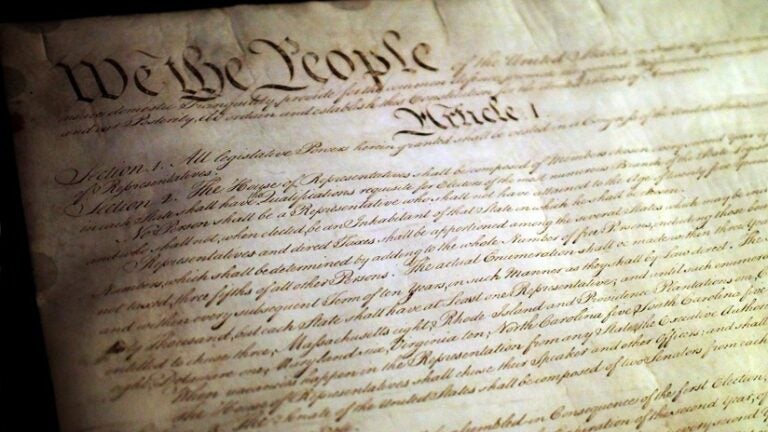
Celebrate Constitution Day 2016 with USC
We the People of the United States, in Order to form a more perfect Union, establish Justice, insure domestic Tranquility, provide for the common defence, promote the general Welfare, and secure the Blessings of Liberty to ourselves and our Posterity, do ordain and establish this Constitution for the United States of America.
— Preamble to the Constitution of the United States
In 2004, Congress passed legislation establishing Constitution and Citizenship Day a federal holiday commemorating the ratification of the U.S. Constitution on Sept. 17, 1787. Join USC Dornsife in observing the 228th anniversary of this historic event and celebrate the Constitution’s legacy by attending the Road To The White House Series – New Electorate: Diversity, Demography and Race in the 2016 Election.
The event, sponsored by the Jesse M. Unruh Institute of Politics at USC Dornsife, is free to attend and will feature a live panel discussion that will unpack diversity, demography and race in the 2016 presidential election. The panel includes:
- Mike Madrid, founder, Grassroots Lab, a public affairs firm
- Bob Shrum,Carmen H. and Louis Warschaw Chair in Practical Politics
Dan Schnur, director of the Unruh Institute and assistant professor of the practice of political science, will moderate the panel.
The event, part of the Road To The White House Series taking place ahead of the November election, takes place Sept. 20 at Ground Zero Performance Café on the University Park Campus.
In addition, Art Auerbach, associate professor of political science, will lead a discussion this week in Political Science 426, The United States Supreme Court, regarding the significance of Constitution Day and how the changing personnel on the Supreme Court in light of the passing of Justice Antonin Scalia and nomination of Merrick Garland may impact the court’s interpretation of constitutional protections.
Background on the U.S. Constitution
On Sept. 17, 1787, 39 of the 55 delegates attending the Constitutional Convention signed the U.S. Constitution, forging a new government for the United States of America.
The result of months of strenuous debate over the structure and powers of a new federal government, the U.S. Constitution is a testament to cooperative statesmanship and the art of politics. In fact, in his proclamation creating the first national Thanksgiving Day on Nov. 26, 1789, George Washington noted that the holiday should be a time for the people of the United States to give thanks, among other things, for “the peaceable and rational manner” in which the Constitution had been established.
Since the Bill of Rights was adopted on Dec. 15, 1791, the U.S. Constitution has been amended only 16 times. Providing an intricate system of checks and balances among the various branches and levels of government, and assuring the basic individual liberties that are essential to a free and democratic society, this remarkable document has proved extraordinarily adaptable to the needs of a changing society. It also has served as an inspiration and a model for other countries around the world.
The National Archives has posted a variety of materials about the Constitution available through these links:
The Signers of the Constitution
The Bill of Rights: Amendments 1-10
The Bill of Rights: Amendments 11-27